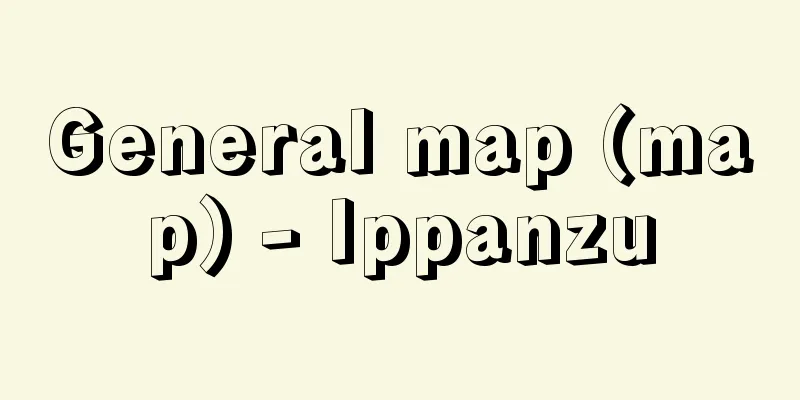Civil society - Shiminshakai (English spelling) civil society English

|
The term civil society is used in the broadest sense to mean a society made up of citizens, but the meaning of the term "citizen" in this case has varied historically. For example, members of a polis in classical antiquity were also called citizens, and members of a medieval city were also called citizens. However, ancient polis and medieval cities are not called civil society. Therefore, the term civil society is used in the historically limited sense of civil society unique to modern times, that is, a society made up of modern citizens. In this case, modern citizens are independent individuals who, as will be described later, are guaranteed fundamental human rights, who relate to each other in social relationships on a free and equal footing, and who participate in national politics as bearers of sovereignty. Therefore, civil society is the totality of the relationships that such modern citizens form with each other. On the other hand, because the word citizen also had the meaning of a resident of a city, it is sometimes used today to refer to the residents of a city, and from there, it can also be used to refer to the residents of a local government, as seen in terms such as civic movements. However, the modern citizens who make up modern civil society do not refer to the residents of a city or local government individually, but in modern nation-states, they include the entire nation. However, while the word nation is used to mean people who belong to a nation, the word citizen is used to mean members of the society that is the basis of that nation. The term civil society is sometimes used in the same sense as bourgeois society or capitalist society. It is true that modern civil society is organized in a capitalist way in terms of its economic structure or class relations. However, since civil society refers to the organizational principle of society itself, while bourgeois society or capitalist society refers to the economic or class organizational principle of society, the two should be used separately. [Tadaki Otsuka] The Establishment of Modern Civil SocietyThe history of human society can be divided into pre-modern and post-modern periods when viewed from the perspective of the basic units that make up each society. In other words, pre-modern societies were structured around some kind of human group (community), whereas modern society is structured around independent individuals. And the independent individuals that make up the units of modern society are modern citizens. Therefore, the establishment of modern civil society is the process in which pre-modern human groups (communities) disintegrated and independent individuals who left those groups began to form new relationships with each other. We will now briefly describe this process in the case of Western Europe, where modern civil society was established earliest. Human groups as units constituting medieval Western European society included status (clergy, nobility, commoners) distinguished by birth or occupation, and communities (urban communities, rural communities) divided by place of residence. Around the 16th century, the power of medieval feudal lords declined, and the king, who exercised sovereignty, concentrated power, and a state system called absolutism was established. However, even under absolutism, the basic units of medieval society continued to exist as basic units constituting society, although they were modified. That is, the units were various statuses, various feudal estates, urban communities and their internal professional associations (guilds), rural communities, etc. These units (human groups) were distinguished from others by their own unique privileges, and were called associations (or intermediate associations). Therefore, society under absolutism was organized by associations. However, from the 16th century onwards, with the development of the commodity economy and the formation of the capitalist mode of production, all of these associations gradually began to disintegrate. The basis of this process of disintegration was the disintegration of feudal land ownership relations due to the disintegration of the peasant class, and along with this, all external economic coercive forces such as class discrimination, feudal rule, the organization of guilds, and communal regulations in rural areas were relaxed, and individuals broke away from the organization of associations, became independent as owners of commodities (including the commodity of labor power), and entered into free commodity exchange relationships with each other. In this way, individuals became modern citizens and modern civil society was formed, and it was the civil revolution (bourgeois revolution) that completed this process. [Tadaki Otsuka] Civil Revolution and Civil SocietyIn the 17th and 18th centuries in Western Europe, criticism of absolutism intensified under the influence of natural law and social contract theories, and a movement to create a new society to replace absolutism emerged as a revolution, centered on the bourgeoisie, the backbone of capitalism. Examples of this are the English Revolution (Puritan Revolution, Glorious Revolution) in the 17th century, the American Revolution in the 18th century, and the French Revolution. All of these revolutions are called civil revolutions because they established modern civil society. If we take the French Revolution as an example of the process of the establishment of civil society through civil revolutions, first, the estate system, feudal system, guilds, and communal regulations in rural areas were abolished and all associations disappeared. At the same time, the Declaration of the Rights of Man guaranteed basic human rights such as freedom, ownership, and equality of rights, and confirmed sovereignty of the people. Thus, a modern civil society was established in which modern citizens, independent of associations, could enter into commodity exchange relationships with each other on a free and equal footing and participate in national politics as bearers of sovereignty. Because the relationships between citizens in civil society are primarily commodity exchange relationships, Hegel defined civil society as a "system of desire satisfaction" and considered the role of the state to provide order to it. However, since the civil revolution made it clear that the citizens as a whole are the bearers of state sovereignty, civil society and the state are not simply contrasted, but rather the modern state is organized based on the common interests of citizens in civil society. In this way, civil society was established through a civil revolution, and the fact that the revolutions in England, America, and France were civil revolutions is made clear by the fact that all of them included declarations guaranteeing basic human rights to individuals who had left associations. In contrast, the Meiji Restoration in Japan was a turning point in the establishment of capitalism, but it was woefully inadequate in terms of guaranteeing basic human rights, and this issue was carried over until the postwar reforms after World War II. Therefore, it can be said that civil society in Japan was established in two stages: the Meiji Restoration and the postwar reforms. [Tadaki Otsuka] "The Philosophy of Right" by G. Hegel, translated by Fujino Wataru and Akazawa Masatoshi (1967, Chuokoron-Shinsha) " ▽ "Civil Government" by J. Locke, translated by Ukai Nobunari (Iwanami Bunko)" ▽ "The Establishment of Modern Civil Society" by Naruse Osamu (1984, University of Tokyo Press) ▽ "Civil Society in Britain" by Takei Yoshiaki (1991, Miraisha)" ▽ "Classics and Contemporary Thought on Civil Society" by Hirata Kiyoaki, edited by Yagi Kiichiro et al. (1996, Yuhikaku) " ▽ "Civil Society in Postwar Japan" by Sugiyama Mitsunobu (2001, Misuzu Shobo) [References] | | | | | | | | | | | | | | | | | | | | | | | | | | | | | | | | | |Source: Shogakukan Encyclopedia Nipponica About Encyclopedia Nipponica Information | Legend |
|
市民社会という語は、もっとも広くは、市民たちで構成される社会という意味で用いられるが、その場合の市民という語の内容は、歴史的にみてさまざまである。たとえば、古典古代のポリスの構成員も市民とよばれ、中世都市の構成員も市民とよばれている。しかし、古代のポリスや中世都市を市民社会とはいわない。したがって、市民社会という語は、近代に特有な市民社会、つまり、近代市民たちで構成される社会という、歴史的に限定された意味で用いられる。その場合の近代市民というのは、後に述べるように、基本的人権を保障されて、自由で平等な立場で相互に社会的に関係し合い、かつ、主権の担い手として国政に参加しているような、独立した個人のことである。したがって、市民社会というのは、そのような近代市民たちが相互に取り結ぶ諸関係の総体である。 他方、市民という語は、都市の住民という意味をももっていたから、今日でも、ある都市の住民をさして用いられる場合があり、そこから転じて、市民運動などという用語にみられるように、ある地方自治体の住民をさして用いられる場合もある。しかし、近代市民社会を構成する近代市民は、ある都市や地方自治体の住民を個別にさすのではなく、近代の国民国家においては、国民全体を包含している。ただ、国民という語が、ある国家に所属している人間たちという意味で用いられるのに対して、市民という語は、その国家の基礎にある社会の構成員という意味で用いられる。 また、市民社会という語は、ブルジョア社会ないし資本主義社会と同じ意味で用いられる場合がある。確かに、近代市民社会は、その経済構造ないし階級関係からみれば資本主義的に編成されている。しかし、市民社会というのは社会そのものの編成原理を意味し、ブルジョア社会ないし資本主義社会というのは社会の経済的ないし階級的編成原理を意味するのであるから、両者は区別して用いられるべきである。 [遅塚忠躬] 近代市民社会の成立人間社会の歴史は、それぞれの社会を構成する基本的な単位が何であるかという点からみた場合、近代以前と近代以後とに二分される。すなわち、近代以前の社会は、何らかの人間集団(共同体)を単位として構成されていたのに対して、近代社会は、独立した個人を単位として構成されている。そして、その近代社会の構成単位としての独立した個人が、近代市民である。したがって、近代市民社会の成立は、近代以前の人間集団(共同体)が解体して、それらの集団から離脱した独立の個人が相互に新しい関係を取り結ぶようになる過程である。いま、その過程を、近代市民社会がもっとも早く成立した西ヨーロッパの場合について略述しよう。 中世の西ヨーロッパ社会を構成する単位としての人間集団には、出生や職能によって区別された身分(聖職者・貴族・平民)とか、居住地によって区分された共同体(都市共同体・農村共同体)とかがあった。ほぼ16世紀以降、中世の諸侯の権力が衰えて、主権を行使する国王が権力を集中して絶対主義とよばれる国家体制が成立したが、その絶対主義のもとでも、社会を構成する基本単位としては、中世社会の基本単位が改変されつつも存続した。すなわち、その単位は、諸身分、さまざまな領主所領、都市共同体およびその内部の職能団体(ギルド)、農村共同体、などであった。それらの単位(人間集団)は、それぞれに固有の特権によって他から区別されており、社団(ないし中間団体)とよばれる。したがって、絶対主義下の社会は、社団によって編成されていた。 ところが、同じく16世紀以降、商品経済の展開と資本主義的生産様式の形成によって、これらの社団は、いずれもしだいに解体し始める。その解体過程の基礎をなすものは農民層の分解による封建的土地所有関係の解体であり、それに伴って、身分差別、領主の支配、ギルドの編成、農村の共同体的規制など、あらゆる経済外的強制力が弛緩(しかん)し、諸個人は、社団の編成から離脱して、それぞれが、商品(労働力という商品も含む)の所有者として独立し、相互に自由な商品交換関係を取り結ぶようになる。こうして諸個人は近代市民になり、近代市民社会が形成されるのであるが、その過程を完成させたのが市民革命(ブルジョア革命)である。 [遅塚忠躬] 市民革命と市民社会17、18世紀の西ヨーロッパでは、自然法思想や社会契約説などの影響のもとで、絶対主義に対する批判が強まり、資本主義の担い手であるブルジョア階級を中心として、絶対主義にかわる新しい社会をつくろうとする動きが革命となって現れた。17世紀のイギリス革命(ピューリタン革命、名誉革命)、18世紀のアメリカ独立革命およびフランス革命がそれであり、それらの革命は、いずれも近代市民社会を成立させた革命であるので、市民革命とよばれる。市民革命による市民社会の成立の過程をフランス革命を例にとってみれば、まず、身分制、領主制、ギルド、農村の共同体的規制などが撤廃されてあらゆる社団が消滅し、同時に、人権宣言によって、自由権や所有権や権利の平等などの基本的人権が保障され、かつ、主権在民が確認されたから、ここに、社団から独立した近代市民たちが、自由で平等な立場で相互に商品交換関係を取り結び、かつ、主権の担い手として国政に参加するような、近代市民社会が成立した。市民社会における市民相互の関係は主として商品交換関係であるから、ヘーゲルは、市民社会を「欲望充足の体系」と規定し、これに秩序を与えるのが国家の役割であると考えた。しかし、市民革命は市民の総体が国家主権の担い手であることを明示したから、市民社会と国家は単に対置されているのではなく、市民社会における市民たちの共通の利害に基づいて近代国家が編成されるのだというべきである。 このように、市民社会は、市民革命を経ることによって成立したのであり、イギリス、アメリカ、フランスの革命が市民革命であることは、それらのいずれもが、社団から離脱した個人に基本的人権を保障する宣言文を掲げていることによって明示されている。これに対して日本の明治維新は、資本主義成立の画期ではあったが、基本的人権の保障という点でははなはだ不十分であり、その課題は第二次世界大戦後の戦後改革まで持ち越されたから、日本における市民社会は、明治維新と戦後改革との2段階を経て成立したというべきである。 [遅塚忠躬] 『G・ヘーゲル著、藤野渉・赤沢正敏訳『法の哲学』(1967・中央公論社)』▽『J・ロック著、鵜飼信成訳『市民政府論』(岩波文庫)』▽『成瀬治著『近代市民社会の成立』(1984・東京大学出版会)』▽『竹居良明著『イギリスの市民社会』(1991・未来社)』▽『平田清明著、八木紀一郎ほか編『市民社会思想の古典と現代』(1996・有斐閣)』▽『杉山光信著『戦後日本の「市民社会」』(2001・みすず書房)』 [参照項目] | | | | | | | | | | | | | | | | | | | | | | | | | | | | | | | | | |出典 小学館 日本大百科全書(ニッポニカ)日本大百科全書(ニッポニカ)について 情報 | 凡例 |
<<: Civic Sports - Shimin Sports
>>: Tripitaka Master Cimin (English: Tripitaka Master Cimin)
Recommend
Cambuskenes Monastery - Cambuskenes Monastery
…The castle sits on a hill, and the palace and Go...
Yekuana - Yekuana
...Their language belongs to the Carib family, wh...
Hosocho (thin butterfly) - Hosocho
A general term for insects belonging to the Nympha...
Otani Sobyo Shrine
The ancestral temple of the Otani sect of Shinshu ...
Pokey-hokey (English spelling)
...They like children and horses, and are believe...
Spectrophotometer
...The term photometer is generally used, but thi...
Awa Island
An uninhabited island located off the coast of Tak...
Akehama [town] - Akehama
A former town in Higashiuwa District, western Ehim...
Komoro [city] - Komoro
A city in eastern Nagano Prefecture. It was incorp...
Innovation Local Government - Kakushinjichitai
This term refers to ordinary local governments in...
drugstore beetle
...Drugstore beetles, cigarette beetles, and othe...
Mount Wakakusa
A mountain in the eastern part of Nara City. It i...
Tokoro [town] - place
A former town in Tokoro District, northeastern Hok...
Farm road - Noudou
A road that connects farm fields or farms and far...
Agrément (diplomacy) - agrément
...The field of "foreign policy decision-mak...









